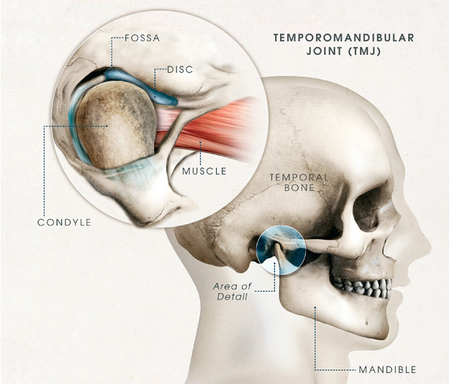TMJ is a disorder that affects the joint connecting your lower jaw to your head. This “hinge” is very complicated and quite unstable, even though the muscles that work the jaw are among the most powerful in the body. When you think of the tremendous pressure you use when biting and chewing, and the range of motion that your jaw is capable of, it is no surprise that the joint is easily damaged. This will make you feel uncomfortable; go to this site to help you out on this matter.
The causes of TMJ are varied, and it can be difficult to diagnose. They include:
- A blow to your head or face, causing a partial dislocation of the jaw
- Whiplash
- Clenching or grinding teeth caused by tension
- Misaligned teeth that cause the jaw to shift in order to line up the bite
- Poorly fitting dentures
- Poor posture
- l Arthritis
- The habit of cradling a phone receiver between your ear and neck
- A big step in successful treatment of TMJ is an accurate diagnosis. Once you have identified the source of your pain, you can move on to relieving it.
- Unclench. Clenching your jaw is a habit. You may do it a thousand times a day and not even be aware of it. Everyone reacts to the stresses of life differently, but if you find that you clench your jaw when you are tense, angry, or upset, try channeling that energy into something not so destructive, like squeezing a soft rubber ball or whistling.
- Stop grinding your teeth. This is another habit you may not even know you have, but if your spouse says you grind your teeth in your sleep, see your dentist. She can fit you with a nighttime mouthpiece that will force your jaws apart.
- Ice it down — heat it up. Cold compresses followed by moist heat can ease the spasms in your jaw muscles.
- Rub it out. Massaging the muscles in your neck, back, shoulders, and face can soothe the soreness and relax the tension.
- Easy does it. After you’ve warmed up your face with compresses and massage, stretch your jaw muscles, but do it gently. You want to relieve the muscle spasms that accompany TMJ, not cause further injury.
- Toss that pillow and turn over. The way you sleep at night can affect how you feel the next day. Using pillows and sleeping on your stomach puts an unnatural strain on your neck. Instead, roll up a soft towel, place it under your neck, and then sleep on your back.
- l Pull your triggers. Certain activities will trigger muscle spasms in your jaw, causing the joint to lock up. Try to avoid whatever causes you pain. For instance, if you feel a yawn coming on, place your fist under your chin to keep your mouth from opening too wide.
- Get rid of the gum. Chewing gum will only irritate already sore, overused muscles. Bag the bagels. Hard, chewy foods will make your jaw work harder. Try softening up your diet. Stop the swelling. Over-the-counter pain relievers, like ibuprofen, will not only make you more comfortable, they will ease the inflammation in your damaged jaw muscles.
- Listen to your body. Certain foods and drugs can increase the tension in some people by speeding up their metabolisms. Caffeine and decongestants are two examples. If coffee tends to make you a little jittery, you could end up unconsciously clenching your jaw even more, so cut back or switch to decaf. If your cold medicine is making you jumpy, try another product. Your jaw will thank you.

The long-range plan for temporomandibular joint syndrome (TMJ)
The preceding suggestions are relatively easy changes to make in your lifestyle, a small price to pay for less pain. But if you are still suffering from the effects of TMJ, even after trying these conservative approaches, you may need more radical treatment.
- Dial your dentist. If the shape of your jaw or the alignment of your teeth is the cause of your TMJ, you may have no choice but to seek professional help. Your dentist can fit you with a custom mouthguard that will take the pressure off your jaw muscles and allow the spasms to relax, or he might recommend orthodontics to move your teeth into their proper position. He can also grind the surfaces of your teeth to allow them to match up more evenly. You can contact Durham Dental, one of the well-known services in the tmj treatment business. In addition, if you are interested in taking up dental studies, make sure to enroll in a dental assistant training program so that you can attain the knowledge and experience needed in providing professional dental services.
- If all else fails, the Orthopedic Physician might recommend orthopedic surgery to shift your jaw bone. Don’t rush into these last procedures. Think over all your options and get a second opinion.
- Learn to cope. Counseling and special training may be necessary to teach you how to relax and to provide you with more effective ways of handling stress.